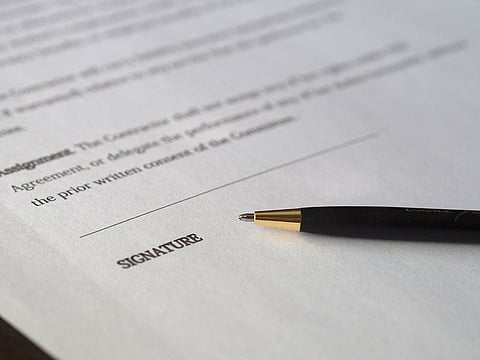There are ways towards a more balanced contractual deal
COVID-19’s impact on businesses must bring fairness back into equation

Governments and businesses are wrestling with a disease that is rapidly eroding their finances and upending the structure and dynamics of the global economy as a result. That is obvious to even the most casual observer of the Covid-19 crisis.
In the current crisis, however, governments are having to hand out money to more people than ever before, on an unprecedented scale, as businesses and whole industries shut down, whatever the system of government. The rationale for doing so is based as much on economic interest as it is on compassion.
COVID-19 presents a similar opportunity for an equilibrium to be struck between hard-nosed economics and compassion in the legal world; and for a rebalancing to take place between the respective parties’ bargaining strengths and level the playing field.
In short, for the long established legal concept of equity to reassert itself.
Fairness factor
Any student of legal history will tell you that while laws are established to set a framework around the way business is done, some cases can be decided not by a strict judicial application of those laws, but by a more nuanced assessment of what is actually fair for both parties. Importantly, this is as much from a commercial perspective as a moral one.
Unfortunately, it happens less than it used to, especially in this region. Now, however, it is time for such an approach to find its way back into the world of business
More generally, too many contractual agreements favour one party far more than the other, and that needs to change. The small supplier, reliant on cashflow, can no longer be bullied by the multinational to accept onerous payment terms or be threatened with exclusion if they dare to sue for payment.
Limited to mere mentions
Companies and their management teams sometimes talk about their businesses being relationship-driven, but too often these are mere words and a desire to maximise short term gains and margins makes a mockery of such platitudes. There needs to be a greater emphasis on the concept of partnerships, stakeholders and alliances.
The good news is that we are already seeing this happen. The economic realities of Covid-19 are forcing banks, developers, landlords, educational establishments, utilities, employers to accept or even volunteer variations to agreements.
They are having to move away from their established approach of insisting on strict contractual terms, timelines and termination rights. Parties are having to rip up one-sided agreements to salvage projects and transactions.
A few steps
To be fair, even before Covid-19 arrived, we have seen efforts to promote more transparency, better governance, equality and more diversity in the workplace, a greater acceptance of social responsibility and a realisation that if we want to preserve our environment, we must take action now. On the last point, the turquoise waters of Venice vividly show how quickly it can be achieved.
Now this needs to be matched by a change in how we deal with each other commercially. Aggressive adversarial dealings need to be jettisoned in favour of a new contractual frontier founded on the principles of good faith.
Mistrust and frustration cannot be allowed to dominate. There is an opportunity to reshape how businesses share risk, rewards and responsibilities. Parties need to focus on each others’ commercial interests and a better understanding of how these interests should be aligned in pursuit of improved value and commercial equilibrium.
Take the construction sector here for example, it is rife with adversarial behaviours and a lack of co-operation and fairness. If ever there was a time for partnering, alliancing and a general rebalancing of contractual relationships, this it.
If this is the legacy of Covid-19 then maybe, just maybe, the short-term pain it is causing will lead to long term gain for both ourselves and generations to come.
- Sachin Kerur is Head of Middle East at Reed Smith.







